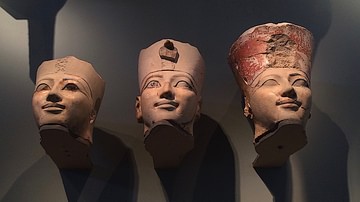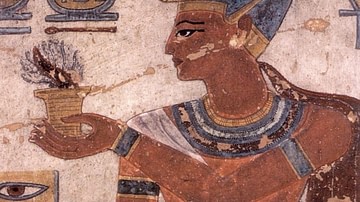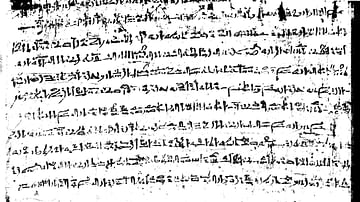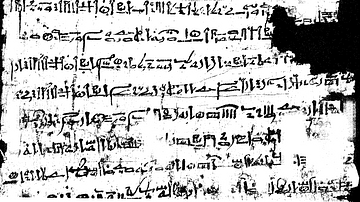Search Articles
Browse Content (p. 130)

Article
Chariots in Ancient Chinese Warfare
The chariot was used in Chinese warfare from around 1250 BCE but enjoyed its heyday between the 8th and 5th century BCE when various states were constantly battling for control of China. Employed as a status symbol, a shock weapon, to pursue...

Article
Ancient Israelite & Judean Religion
As early as the 10th century BCE, Israelite and Judean religion began to emerge within the broader West Semitic culture, otherwise known as Canaanite culture. Between the 10th century and 7th centuries BCE, ancient Israelite and Judean religion...

Article
The Statuary of Maatkare Hatshepsut
One of the most fascinating aspects of the female pharaoh Maatkare Hatshepsut's reign (1479 - 1458 BCE) is the artwork she left behind. Art served an important purpose in Egyptian society; every statue, mural, and motif had a significant...

Article
Tea in Ancient China & Japan
Tea, still probably the world's most popular prepared beverage, was first drunk by Chinese monks to aid meditation and those who valued its medicinal qualities, but it quickly grew in popularity, spreading to other East Asian cultures, especially...

Article
The Neanderthal-Sapiens Connection
In May 2010, after years of intense discussions surrounding possible fossils of mixed Homo sapiens and Neanderthal descent floating around the scientific community, a team led by Svante Pääbo of the Max-Planck Institute for Evolutionary Anthropology...

Article
The First Labor Strike in History
The most important cultural value in ancient Egypt was harmony; known to the Egyptians as ma'at. Ma'at was the concept of universal, communal, and personal balance which allowed for the world to function as it should according to the will...

Article
The Report of Wenamun: Text & Commentary
The literature of the Middle Kingdom of Egypt (2040-1782 BCE) is justly famous as some of the best the culture ever produced. Great works like The Tale of the Shipwrecked Sailor and The Tale of Sinuhe stand among the great literary masterpieces...

Article
Chinese Lacquerware
Lacquer was a popular form of decoration and protective covering in ancient China. It was used to colour and beautify screens, furniture, bowls, cups, sculpture, musical instruments, and coffins, where it could be carved, incised, and inlaid...

Article
The Report of Wenamun & the Perils of Living in the Past
The Report of Wenamun (also known as The Tale of Wenamun or The Report of Wenamon) is an Egyptian literary work dated to c. 1090-1075 BCE toward the end of the New Kingdom (c.1570 - c. 1069 BCE). The piece was originally interpreted as an...

Article
Jade in Ancient China
Jade (nephrite) was regarded as the most precious stone in ancient China, and it symbolised purity and moral integrity. Prized for its durability and magical qualities, the stone was laboriously carved and polished into all manner of objects...